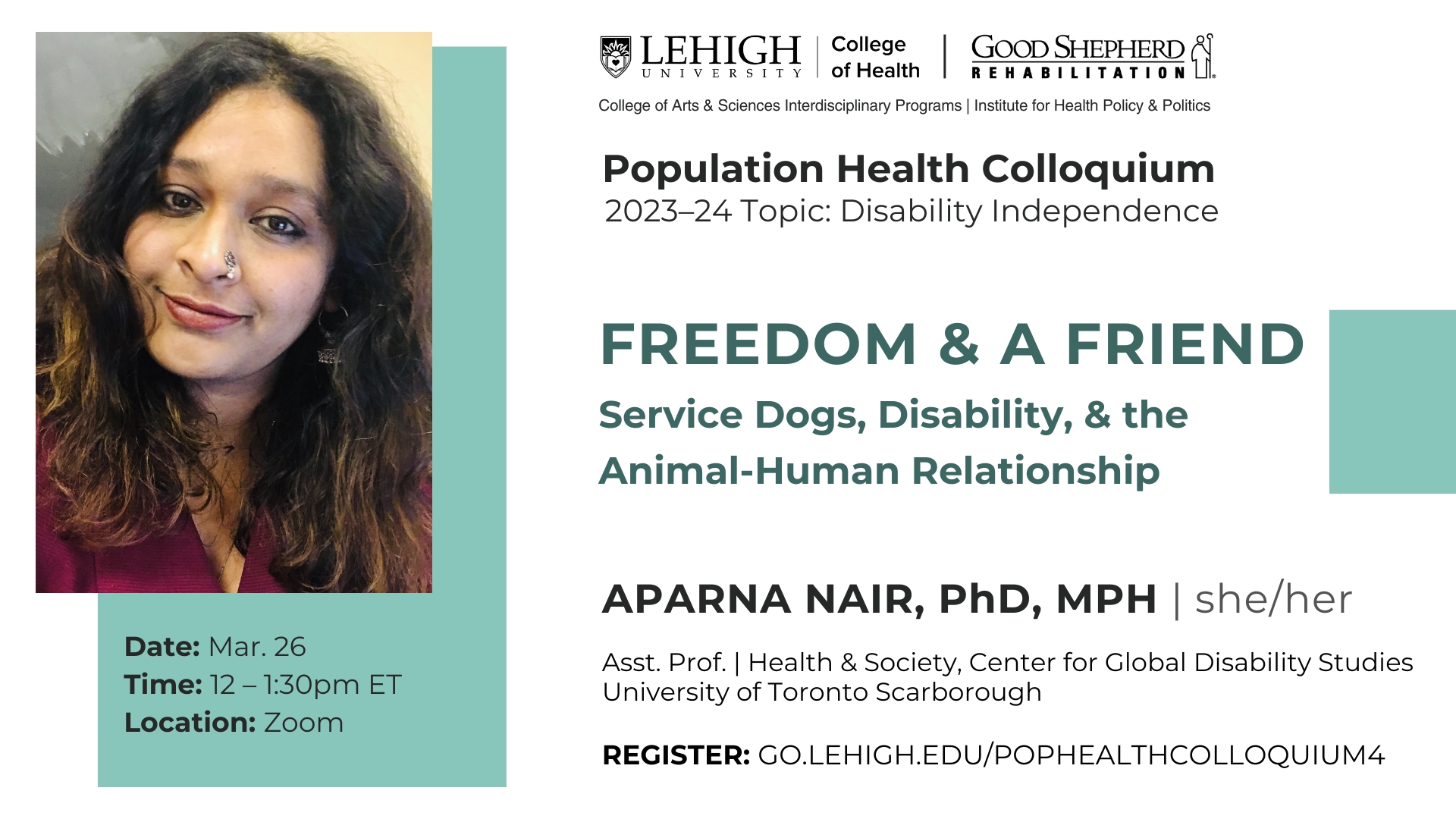
Disability Independence Colloquium: the Intersection of Disability, Race, and Colonialism

By Esha Soni, '24
Aparna Nair discusses the intersection of disability, race, and colonialism in British India
On March 26th, Professor Aparna Nair, PhD, MPH, gave a talk for the Population Health colloquium series, “Freedom and a Friend! Service Dogs, Disability, and the Human-Animal Relationship.” Nair is a historian of disability, medicine, and public health. Her forthcoming book Fungible Bodies is under contract with the University of Illinois press's disability history series and explores the relationship between disability, race and colonialism in British India. Her other work examines the material histories of public health, including the histories of guide dogs and service animals, the experience of epilepsy in modern India and popular culture and disability. She can also be found collecting and writing about comics, seals, and disability.
Nair explained the connected history between humans and dogs, as dogs were the first animals to enter a domestic relationship with humans. She pointed out that dogs:
- Evolved alongside humans and have shaped themselves to meet our needs,
- Are versatile, compassionate, and have served as our guardians and hunters, and
- Have worked their way into crevices of our imagination and everyday existence in multitudinous ways that few species really have.
She then discussed what service dogs have done for disabled people, connecting the colloquium series in relation to human-animal relationships. Nair explains that these relationships rely on emotional bonds between both members of the dyad and that the presence of the service animal marks the disabled handler as the “other,” which is seen as taboo among many cultures.
A key theme woven throughout discussion emphasized how important it is for humans to think about what working as a service dog meant for dogs. Although dogs build a strong emotional connection toward their trainer, there is a significant amount of risk. When dogs save their humans from accidents, they can become traumatized and unable to leave the house, making the dog disabled from the tasks they were trained to do.
The presentation closed with an opportunity for the audience to ask questions through a Q&A session, and closing remarks from Professor Eduardo Gomez. To learn more, watch the full recording here.